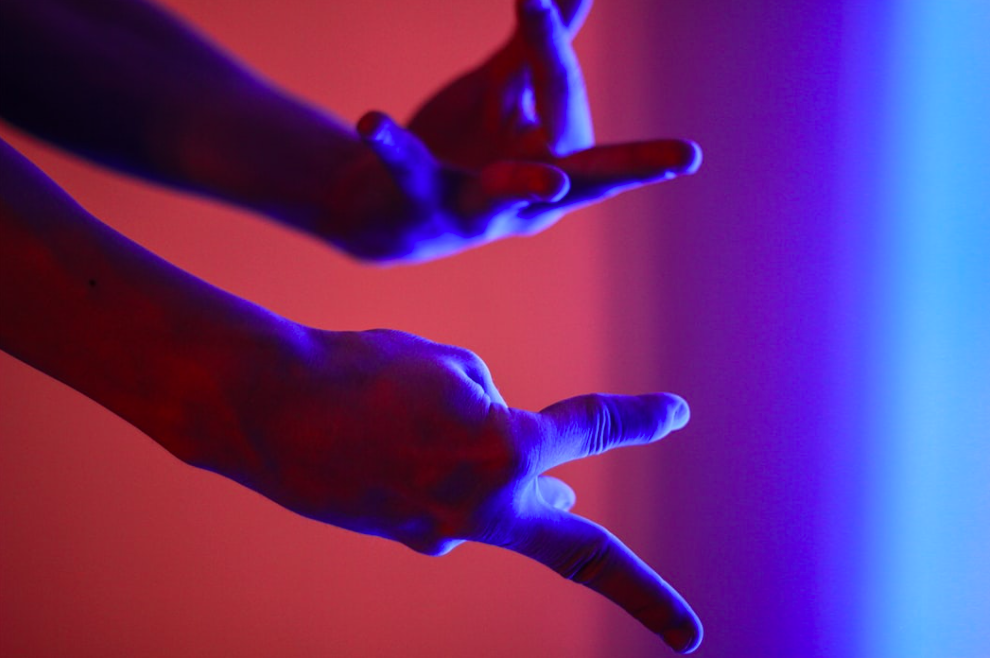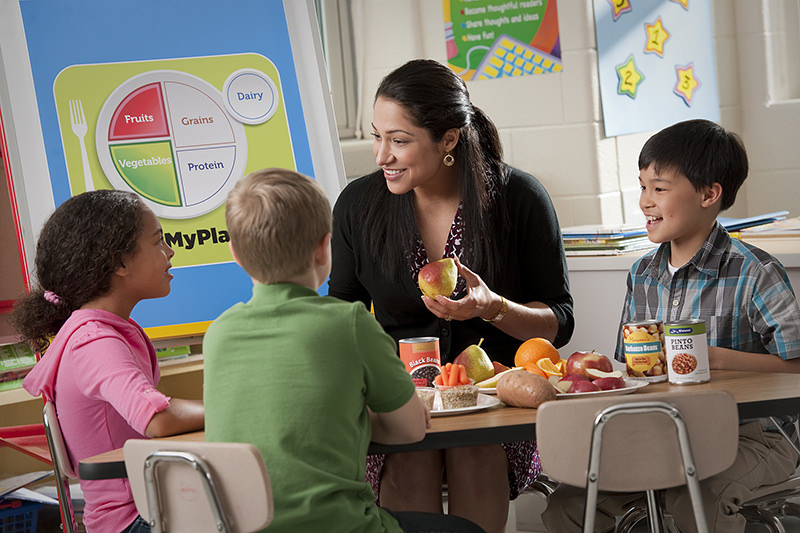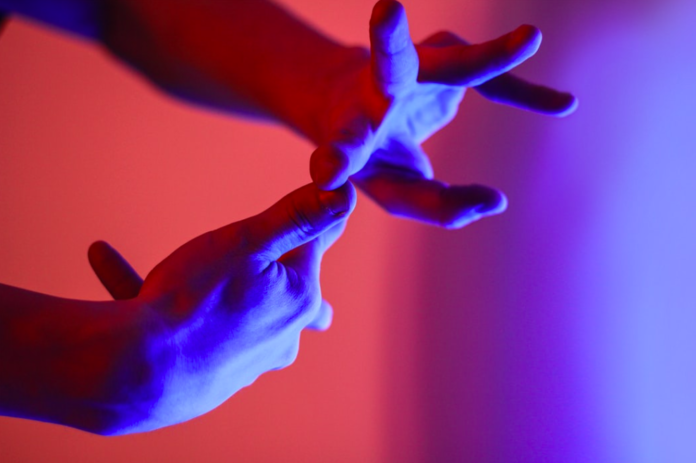The fact that relatively few Dutch people know Dutch sign language does not make communication between deaf and hearing people easy in the Netherlands. In the United States, for example, sign language is currently “hip and trendy” and is the fastest growing and fourth most popular language there. Yiddish, Frisian and Roma are all legally recognised as minority languages in the Netherlands. The deaf community in the Netherlands is currently fighting to get that status for Dutch sign language (NGT).
It is not that the deaf community cannot achieve greater heights without official recognition from the Dutch government: it is more about equality and being part of an inclusive society. No one ever tells a hearing child that they need to learn the Dutch language, because it is already part of their upbringing. Deaf children also need their language to be recognised because sign language is so much more than just a tool for them, it is a way of life for them.
This is why members of the House of Representatives (PvdA, D66 and ChristenUnie) have introduced a bill to officially recognise the Dutch Sign Language (NGT) as an official language in the Netherlands. This will, for example, make it easier for the deaf community to follow debates in the House of Representatives, the weekly press conference of the prime minister and the Christmas speech of the King through a sign interpreter.
There are approximately 1.5 million deaf and hearing-impaired people in the Netherlands, of which more than a third use hearing aids and around 150,000 people purchase hearing aids every year. “People see sign language as just a tool for people who are deaf,” says ChristenUnie MP Carla Dik-Faber, who, together with the PvdA, has been working to gain recognition for Dutch sign language for some time. “But for people born deaf, it is their native language — a full-fledged language to communicate with. It has to be recognised.”
It gets really lonely when you’re deaf: sign language in the Netherlands will help
Jessica van Eijs is another MP from the D66 party supporting the initiative. Van Eijs herself is hard of hearing but does not know sign language. “I know how it feels to be so excluded from society because of your hearing, how lonely that can be. And also how beautiful it is if you can participate a little bit through the use of gestures,” she says.
“In the Netherlands, deaf children do receive some amount of support in school and are also entitled to interpretation hours, but because of the relative unfamiliarity with sign language, it can sometimes be difficult to get them the help they need,” says Van Eijs. “For example, it should be normal for deaf people to be provided with an interpreter at school, or if they want to communicate with a potential employer while applying for jobs.”
Deaf people find it difficult to vote in elections in the Netherlands
Due to the unrecognised status of sign language in the Netherlands, the deaf community finds it very difficult to vote during elections. They have the right to vote and by casting their votes, they get to have an influence on how the government provides them with all the facilities and assistance they need. But how can they know the right candidates to vote for if the information is not accessible to them? They can’t follow political debates, and political rallies are no-go areas for them. The law provides for the right to use sign language, to receive information in that language and to promote and develop sign language in the Netherlands. Unfortunately, this is not currently being fulfilled in the Netherlands.

Deaf people have to fight to be acknowledged
Deaf people also run into lots of problems in daily life. When they tell people that they are deaf, they are usually treated differently — as if they are helpless and there is no use conversing with them. Most deaf people often have to fight to be acknowledged in gatherings — which must be tiring and take a lot of energy. For example, when deaf people attend meetings, most of them have to arrange their own interpreters and also explain how it all works to the event organisers. During conversations, they also have to make sure that people talk to them, and not their interpreters. A lot of everyday folks in the Netherlands have no idea how to act around deaf people. All of these are things that can be addressed if deaf people are recognised as participating members of society.
Sign language in the Netherlands: preserving the Deaf identity
It’s a little disappointing that no attention is given to the identity of deaf children within the medical sector in the Netherlands. Language and culture are intertwined and being deaf shouldn’t be an obstacle to forming an identity. Imagine a situation where hearing parents have a baby and the doctor tells them that their child is deaf. For most parents, it usually comes as a shock, and somehow, the child is seen as a failure. Most deaf children are never told that there is a deaf community, with deaf culture and a language of its own. They grow up missing out on the strength, support and social contact that comes from being part of the deaf community.
More parents need to expose their deaf children to the deaf community, where they can be supported in forming an identity because deafness comes with being part of a cultural minority group. As a cultural minority group, the community has its own language, culture and history. The official recognition of sign language would be seen as a confirmation for the deaf community that they are equals with their hearing counterparts and can enjoy the same rights as everyone else, such as accessibility to Dutch society via a language that is their very own.
An example is the frequent visits to museums that are organised by schools all over the Netherlands for their pupils. Almost all museums in Amsterdam have audio guides, but what about deaf children? Imagine visiting a museum on the history of the Netherlands and not having access to all the information because you cannot use an audio guide, because you’re deaf. And there are no other provisions to help you! For deaf children, the formation of cultural identity is important. Additionally, 95 per cent of deaf children are born into a hearing family and lack adult role models they can identify with and look up to. Most deaf children have hearing adults around them all the time, and sometimes they think their hearing would come when they become adults.
There is a lack of awareness in the Dutch hearing society. It’s not that hard to notice if you pay attention. Travelling by train can be quite a hassle for deaf folks. If a train fails or is delayed, the train driver or conductor usually announces it over the intercom, but there is no information on the electric signs boards, so when everyone gets off the train, deaf folks follow the herd like sheep, without knowing what is going on. If there was an emergency and a deaf person had to be rushed to the hospital, how will the doctor(s) know what is wrong with them? How many doctors and nurses know Dutch sign language? Does your huisarts know Dutch sign language?
Sign Language in the Netherlands: its role in Dutch schools
It is strange that adults so often forget that written language is a derivative of spoken language — something that every toddler understands well because they struggle daily with converting sounds into drawings and vice versa. There are now research institutes in the field of deafness and sign language and training for sign language teachers, but the lack of official recognition continues to derail the achievements of the deaf community. People forget that working with written text or subtitles can be quite difficult for the deaf folks. Deaf people can also be dyslexic or have trouble with reading, so telling them to “stop complaining and just read subtitles or lips” is both insensitive and rude.

Nowadays, we see more sign language on TV and on social media. Sign language shouldn’t just be a trend, it should be officially recognised as a language, and Dutch schools should be teaching it to their students. It only makes sense that it is introduced to Dutch elementary schools. If it becomes a subject in regular elementary and secondary schools, hearing pupils get to share classrooms with their deaf counterparts, make friends with them and see firsthand what they go through, and also learn how to act around them. Moreover, this would make it easier for deaf children to follow classes and communicate with their teachers, school counsellors, therapists, etc.
Sign language in the Netherlands: recognise Deaf people as a cultural minority
More recognition for sign language in the Netherlands will go a long way in opening doors for the country’s deaf community. It will help the deaf and hard of hearing become more involved in society. Family counsellors, audiologists, family doctors (huisarts), etc., do not always see the benefits of the use of sign language, some of them even think that it is bad for the child’s development.
For years, the Dutch sign language (NGT) was banned; children who dared to communicate by gesturing were even punished at home and in school. In those days, Dutch folks thought that communicating via gestures made people stupid. This is why the recognition of Dutch sign language has great emotional value to the deaf community, especially for older deaf people, because they were deprived of the privilege of learning sign language in the years it was banned in the Netherlands. Recognising Dutch sign language is a confirmation of their language, culture, identity and the existence of the deaf community.
The deaf community isn’t a burden. It is a cultural minority group that has definitely earned their recognition.
Are you a member of the deaf community, and what is life like for you in the Netherlands? Let us know in the comment section.
Feature Image: Andrei Lazarev/Unsplash

Not only a compelling article to read, but so important. I just came across it because I live in the Netherlands (as an expat) and am interested in learning sign language here. The breadth of the issue, both experienced in the Netherlands and I’m sure are common within the deaf community in many countries too, is communicated well… I’m sure it’s even difficult to encapsulate them all within a single article. So now, my motivation to learn sign language has definitely moved beyond just an interest, but has become politically important process to be a part of too. Thank you! I do have one question though: are there any active groups/organisations that one could join to support this movement?
Would it be nice for deaf people to see me signing to myself in public spaces/transport? Just like a hearing person can be heard singing to herself when walking in the street. Or someone muttering to themselves while keeping track of the steps in a chore.
Is talking to yourself a thing in the Dutch sign language community?